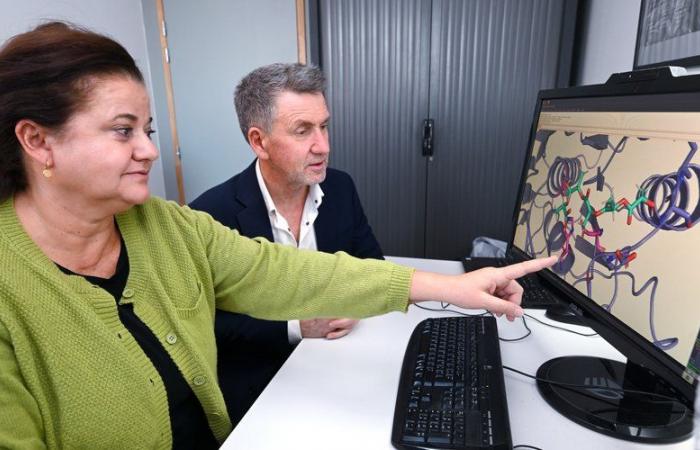the essential
In Toulouse, researchers have developed an enzyme capable of making the plastic used in food packaging self-biodegradable. One more step forward in the problem of the end of life of plastics.
For Isabelle André and Alain Marty, plastic is fantastic… As a source of research! The first, CNRS research director at the Toulouse Biotechnology Institute (TBI), has worked for more than ten years with the second, university professor at INSA and scientific director of the company Carbios. Their collaboration led, in 2020, to the development of a technology capable of degrading plastic from the PET family to make it recyclable. This revolutionary discovery earned them the cover of the prestigious scientific journal Nature. Last April, Carbios laid the first stone, in Longlaville (Meurthe-et-Moselle), for the first PET biorecycling plant.
Also read:
The enzyme that breaks down plastic
Still determined to tackle the problem of the end of life of plastics, researchers from TBI and Carbios have taken up their molecular scissors to develop a self-biodegradable PLA plastic. PLA, a polymer made from plants from which sugar is extracted, is also called polylactic acid. “It is used in yogurt pots, cling film, disposable cutlery, bags of chips, coffee capsules, fruit trays. It has the disadvantage of not being biodegradable at room temperature, and therefore has little chance of disappearing quickly outside of industrial type composting”, summarizes Alain Marty, scientific director of Carbios.
DDM – MICHEL VIALA
Plastic disintegrates in less than 26 weeks
All the researchers’ work consisted of developing an enzyme that could be incorporated into the manufacture of PLA – and therefore capable of withstanding the 170 degrees necessary for its shaping – to then participate in rapid degradation under composting conditions. domestic. “We are the only ones working on a non-chemical biodegradability route and we can do it thanks to the multidisciplinarity of our laboratory,” emphasizes Isabelle André.
Also read:
At the “Toulouse Biotechnology Institute”, we found the green weapon to put an end to plastic pollution
Products soon to be marketed
Result: the PLA plastic which incorporates the Carbios and TBI enzyme degrades and disintegrates in less than 26 weeks without migrating into the product it packages. Again the discovery was published in the scientific journal Nature.
“We have excellent feedback from manufacturers. In 2025, we will find products marketed with this packaging,” says Alain Marty. A partnership between Carbios and the French group SLEEVER® has just given birth to the first tamper-evident tab (plastic found around bottle caps) degradable at room temperature in less than six months. “By collaborating with Carbios, our laboratory approaches science differently, responding to the needs of society and the constraints of industry. We are beyond a simple academic project,” concludes Isabelle André.






